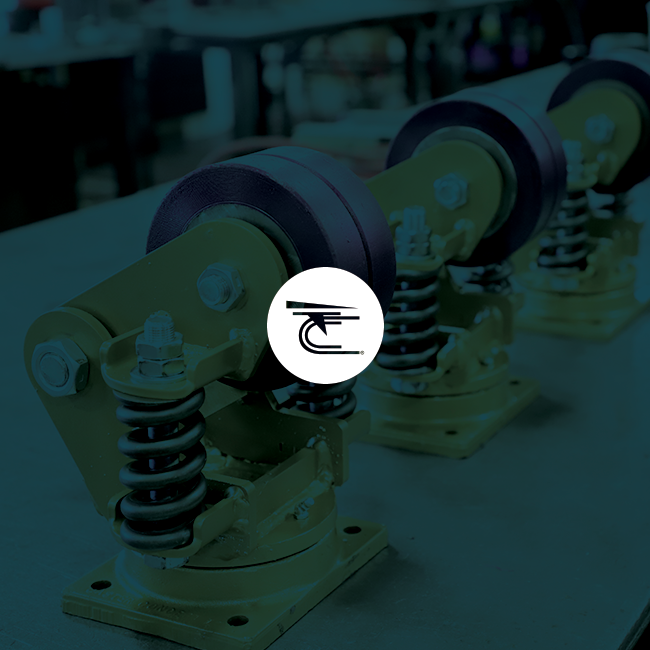

Understanding the differences between cast iron, ductile iron, and forged steel can help you make informed decisions when choosing caster wheels. Consider load, speed, cycle, ergonomics, environment, and of course, cost. All varieties of steel wheels can be used for a host of applications but there is always a trade off when choosing one vs. another.
CAST IRON wheels are made from pig iron that is liquefied and placed into a cast/mold of various sizes. The molecular structure of cast iron is made up of flakes, causing the final product to be more brittle or less flexible. A disadvantage in heavier loads that are susceptible to shocking, i.e. carts pulled over a hard surface at high speeds with large cracks in the floor or a cart that is constantly lifted and dropped like a dumpster cart. Cast iron will corrode so consider the environment – is it wet or possibly just a very humid atmosphere.
The main advantages of cast iron is it’s easily machinable, can carry heavy loads, and is the least expensive to ductile iron and forged steel.
DUCTILE IRON is a cast iron but at the molecular level it looks like graphite nodules as compared to the flakes of cast iron. Perhaps 20% more in cost compared to cast iron, ductile iron is prone to corrode as well.
The advantage of a ductile iron wheel is that it can handle heavier loads, similar to same size wheels in cast iron. Ductile iron can reach similar tensile strengths of forged steel. The greater strength and flexibility, and less brittle-like cast iron tendency, offers a better alternative in those shocking applications.
FORGED STEEL wheels are made by heating a billet of steel – as compared to liquefying. Pliable compression is used to form it to the shape needed. This is very important because the molecular integrity of the steel is not compromised. The disadvantages of this process makes the steel harder to machine. The cost can be 20% higher than cast or ductile iron.
The advantages may outweigh the cost. The forged steel wheel is much stronger and again less susceptible to shocking applications. The forged steel wheel can also be hardened further either surface hardening or through hardening. These processes can be beneficial for heavier loads.
Got questions about steel wheels and wheel difference? Please feel free to contact us at customercentral@casterconcepts.com about this topic or any industrial caster question.